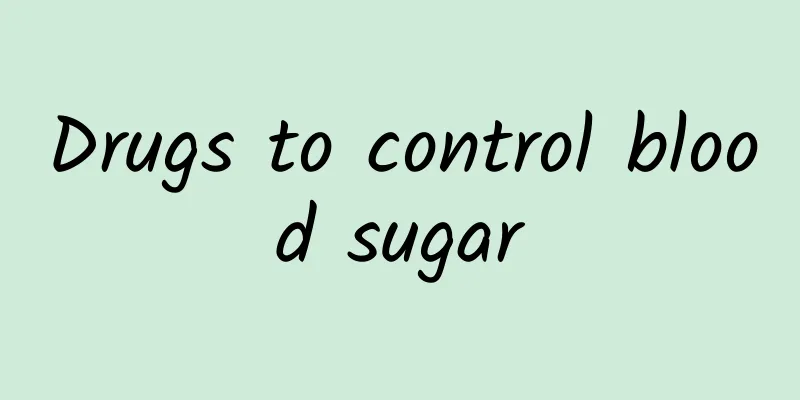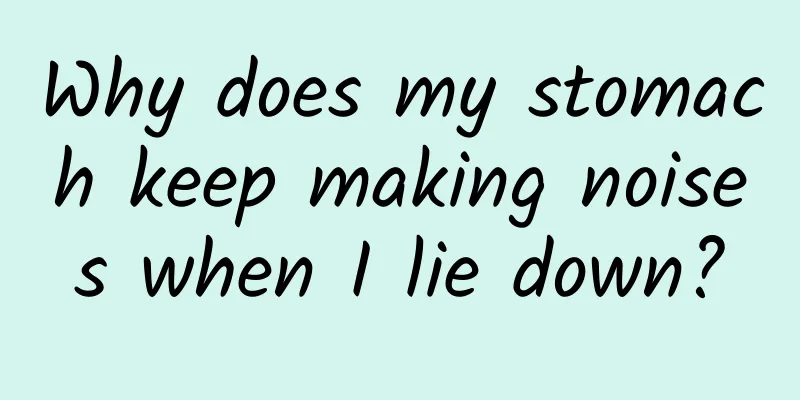Drugs to control blood sugar

|
If the blood sugar in the body is relatively high, the patient should not only pay attention to his usual diet and avoid eating high-sugar foods, but the safer thing is to take some blood sugar control drugs - the best blood sugar lowering drugs, which is very safe for controlling blood sugar to avoid danger. It is understood that drugs for controlling blood sugar should be taken on time and in the right dosage. Drugs including non-sulfonylurea insulin secretagogues are effective in controlling blood sugar. Their prices vary, and patients should choose them rationally. 1. Sulfonylurea insulin secretagogues Types of diabetes drugs. This type of drug mainly stimulates pancreatic beta cells to release insulin to achieve the purpose of lowering blood sugar. It is divided into long-acting and short-acting types. Short-acting drugs include glipizide (Mepirida), gliclazide (Glipizide), etc., which need to be taken half an hour before three meals a day. Long-acting drugs include: gliclazide sustained-release tablets (Diameikang), glibenclamide (Youjiangtang), glipizide controlled-release tablets (Reyining), glimepiride (Amoly), etc. Generally, the medicine is taken once a day, and it is usually recommended to be taken half an hour before breakfast. It should be noted that these sustained-release or controlled-release tablets cannot be broken or chewed before taking, otherwise the "sustained-release" or "controlled-release" effects will not be achieved. 2. Non-sulfonylurea insulin secretagogues Types of diabetes drugs, this type of drug is also called "mealtime blood sugar regulators", commonly used ones include: repaglinide (Novolon, Fulaidi), nateglinide (Tangli), etc. As the name suggests, it can quickly and short-term promote insulin secretion. It is generally taken orally three times a day before or during meals. If you do not eat, do not take the medicine. It is mainly used to control postprandial hyperglycemia. 3. Metformin Among the types of diabetes drugs, metformin may be the most familiar hypoglycemic drug for most diabetic patients. Since it does not directly stimulate insulin secretion, there is no strict restriction on the time of taking the medicine. It can be taken before, during or after meals. However, some patients will have more obvious gastrointestinal side effects after taking it, such as nausea, vomiting, diarrhea, etc., so the medicine can be taken after or during meals to reduce gastrointestinal reactions, generally 2 to 3 times a day. If you are taking metformin extended-release tablets, you can also take it once a day. 4. Thiazolidinediones Types of diabetes drugs mainly include rosiglitazone maleate (Avandia), pioglitazone hydrochloride (Actos, Caspone), etc. Like metformin, it does not directly stimulate the secretion of insulin, but instead exerts a stable and lasting blood sugar-lowering effect by increasing insulin sensitivity. This type of medicine is usually taken once a day at the same time, 1 to 2 tablets each time, regardless of whether you have meals. 5. α-Glucosidase inhibitors Types of diabetes drugs, represented by acarbose (Glucobay), mainly control the occurrence of postprandial hyperglycemia by delaying the digestion and absorption of polysaccharides in the small intestine. They are especially suitable for Chinese people whose dietary habits are mainly based on carbohydrates. The method of taking is to chew it with the first bite of food during a meal, and do not swallow it with water. It should also be noted that if patients with hypoglycemia include such drugs in their daily medication, they need to take glucose directly orally or intravenously. Oral bread, biscuits and other foods will not achieve the effect of quickly raising blood sugar because they cannot be absorbed immediately. 6. Insulin Types of diabetes medications, ① Short-acting insulin (such as regular Humulin and Novolin R): subcutaneous injection half an hour before meals. ② Ultra-short-acting insulin analogs (such as NovoRapid): subcutaneous injection immediately before meals. ③Intermediate -acting insulin (such as Novolin N): According to the needs of the disease, generally 1 to 2 times a day, can be injected subcutaneously 1 hour before breakfast or dinner or before bedtime. ④ Premixed insulin: as needed, usually twice a day. Short-acting insulin + intermediate-acting insulin (such as Humulin 70/30, Novolin 30R, Novolin 50R) should be injected subcutaneously half an hour before meals; ultra-short-acting insulin analogs + intermediate-acting insulin (such as Novolin 30) should be injected subcutaneously immediately before meals. Note: Shake well before each use. ⑤Basal insulin (such as Lantus, Novopac, and Changxiulin): Generally injected subcutaneously once a day at the same time, not affected by meal times. 7. Dipeptidyl peptidase-4 (DPP-4) inhibitors Saxagliptin is a highly effective dipeptidyl peptidase-4 (DPP-4) inhibitor that can increase the levels of endogenous glucagon-like peptide-1 (GLP-1) and glucose-dependent insulinotropic polypeptide (GIP) by selectively inhibiting DPP-4, thereby regulating blood sugar. After a meal, GLP-1 is immediately secreted in the intestine, which stimulates the pancreas to produce glucose-dependent insulin secretion, while inhibiting glucagon secretion and delaying gastric emptying. Under physiological conditions, DPP-4 can quickly degrade GLP-1 and GIP, making them inactive. Taking DPP-4 inhibitors can increase the level of endogenous GLP-1 by 3 to 4 times, effectively reducing HbA1c and postprandial blood sugar without affecting body weight and without obvious risk of hypoglycemia. |
<<: What are the drugs for eye nutrition?
>>: What are anti-stress drugs?
Recommend
What should I do if my baby has bad breath?
Bad breath in babies is a relatively common sympt...
How to treat binocular diplopia
Eyes are the windows to the soul and a tool for d...
What to do if the first cervical vertebra is protruding
The cervical vertebra is composed of many joints....
What are the medicinal effects of fennel?
Fennel is also called "valley fennel". ...
What to do if you have an allergic reaction after a vaccination
For many children, vaccinations are often needed....
What should I do if I get burned by oil? How to effectively prevent oil from splashing on your hands?
Burns are particularly prone to occur when cookin...
What should I do if I have a toothache and a swollen face due to inflammation?
The symptoms of getting a fever are very common a...
Why does my throat itch and keep coughing?
At work or in life, if someone keeps coughing, wi...
What is atrial fibrillation?
Atrial fibrillation is what we often call arrhyth...
When should the tetanus shot be given? This time is most effective
Tetanus injection is necessary when the body is s...
White hair on the right side of the brain
Gray hair is an obvious worry for many people nowa...
What are the symptoms of liver discomfort
The liver is the largest digestive organ in the h...
What to do if you sweat while using sunscreen
In summer, many friends actually use sunscreen be...
How to make Chinese medicine for best effect
When many friends need to use Chinese medicine fo...
Why is my thumb numb?
Numbness in the thumb may be caused by diabetes o...









